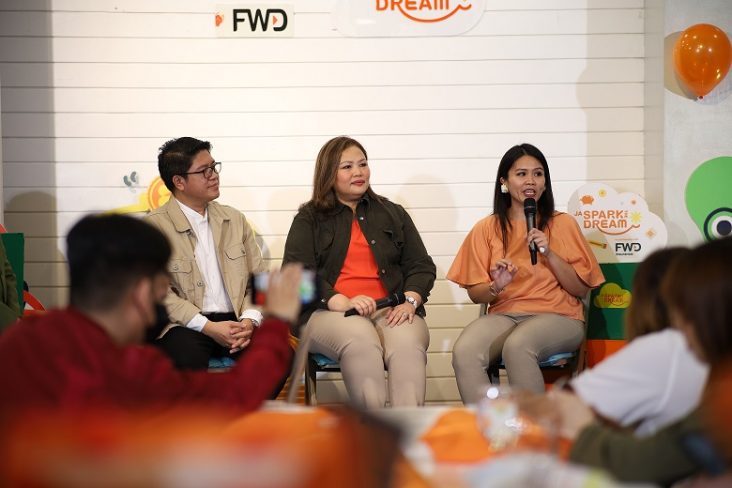According to BSP’s 2021 Financial Inclusion Survey, the number of Filipino adults with savings dropped by 25 percent from 38.6 million in 2019 to 28.9 million in 2021—decimated mainly by the pandemic.
As families recover from the pandemic, experts believe that our children—given their recent experience of how emergencies can affect finances—should learn good money habits early on from their parents.
The pandemic has seen innovation in financial technology (fintech) like e-wallets and e-commerce entering wide adoption. Saving money is much easier than it used to be, but the same modern conveniences can also lead to impulse spending and mismanagement. How many times have kids spent money with just a few taps on the screen?
With technology making money more accessible to children, the basics of financial literacy and resource management have become even more critical for their generation.
Building a financially savvy future
As part of its advocacy for financial literacy, FWD Life Insurance partnered with Junior Achievement of the Philippines (JA Philippines) to launch the JA SparktheDream program, which aims to develop primary school students’ financial literacy at an early age to help them achieve their dreams in life.
“Through JA SparktheDream, FWD Philippines seeks to build a future where more people are in control of their finances, and eventually their lives,” says Roche Vandenberghe, FWD Philippines Chief Marketing and Digital Business Officer.
The JA SparktheDream program simplifies money management topics, making these topics easier to understand, especially for kids in elementary school. It also focuses on financial inclusion, so that they are inspired to become agents of change for others as well.
During the launch, event panelist Gracie Maulion—known online as Tipid Mommy—shared her most important tip for parents teaching their kids about essential life skills.
“Programs like these are a blessing for parents like me,” said Mommy Gracie. “But it takes a village to raise a kid. You also need to set a good example to your children at home.”
“Even if we try to teach them proper money management, they won’t learn the lesson if it doesn’t match the behavior we show at home,” warns Mommy Gracie. “After all, values are more caught than taught.”
Here are some tips on setting a good example, taken from the FWD website:
- Show that you’re not buying impulsively. When children see you overspending on things you don’t need, they will have a hard time realizing that things do cost money and those costs have consequences—like lack of funds when someone falls critically ill. When you’re shopping for clothes and shoes that you don’t need or use, food that spoils in the fridge and is thrown away, they will think that it’s all right for things to go to waste. At the supermarket or mall, buy only the essentials. Teach them how to make a list before leaving the house.
- Let them experience what it takes to make money. Teenagers are always asking for money—teach them instead how to earn it and let them realize the true value of money. During their summer and semestral breaks, don’t let them just hang out with their friends all the time, but help them find a job or figure out how to become an entrepreneur. Food being the top and easier business from home to set up, perhaps they can learn to cook, bake, or design packaging. Encourage them to create content online that can be monetized.
- Involve them in your investments. Children don’t have the money to buy real estate, but by the time they’re teenagers they might have enough to participate in the family’s investments. Create a fund where they contribute a percentage—an equal one coming from each child’s savings account—with the parents matching or doubling their contributions. Use this fund to invest, and let them see their money growing firsthand.
These tips and more are just a part of the practical life lessons on money taught in JA SparkTheDream—one of the many financial literacy and inclusion advocacies from FWD Life Insurance. To learn more about JA SparktheDream and other programs, visit the website and follow FWD Philippines on Facebook and Instagram.







